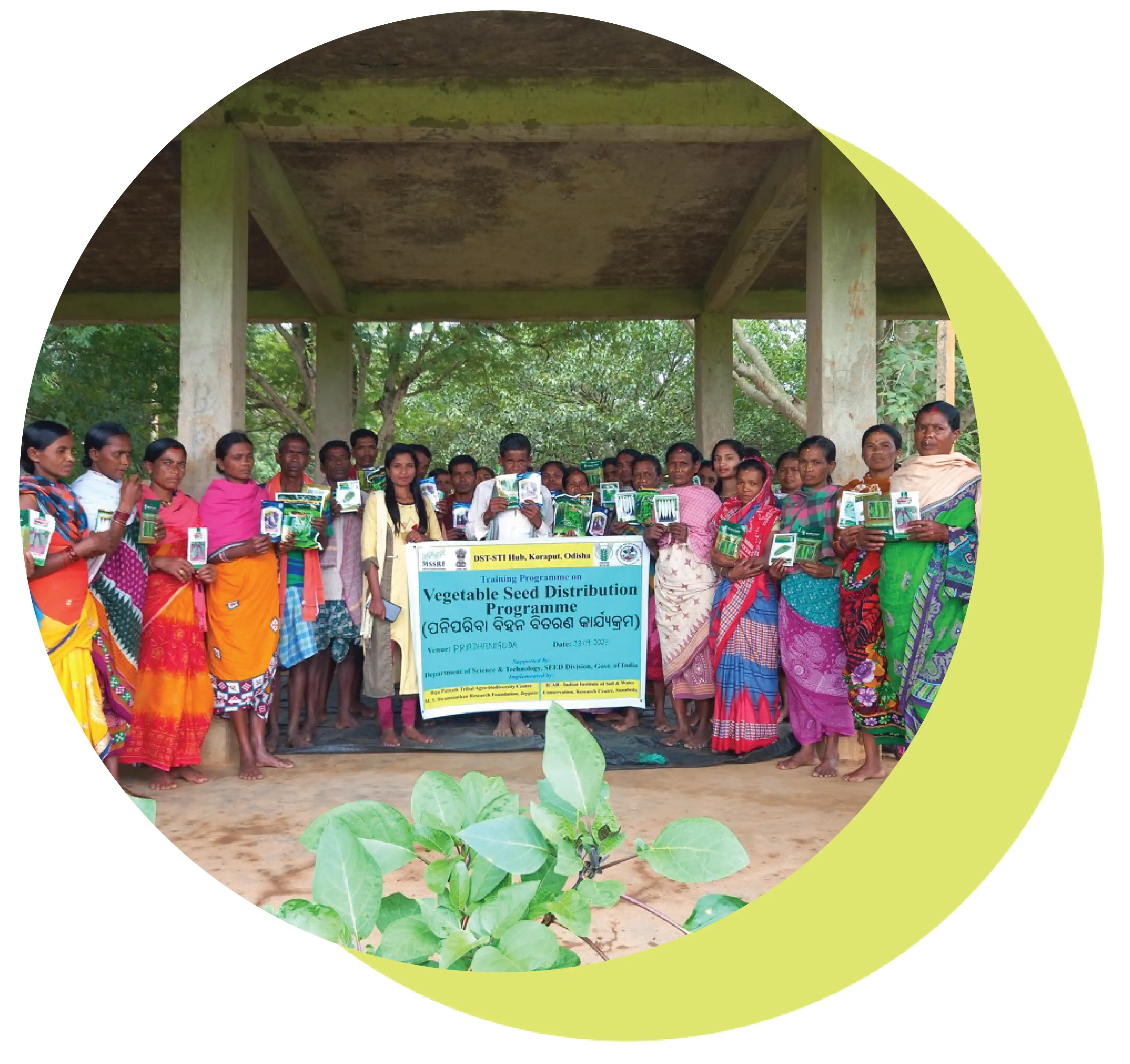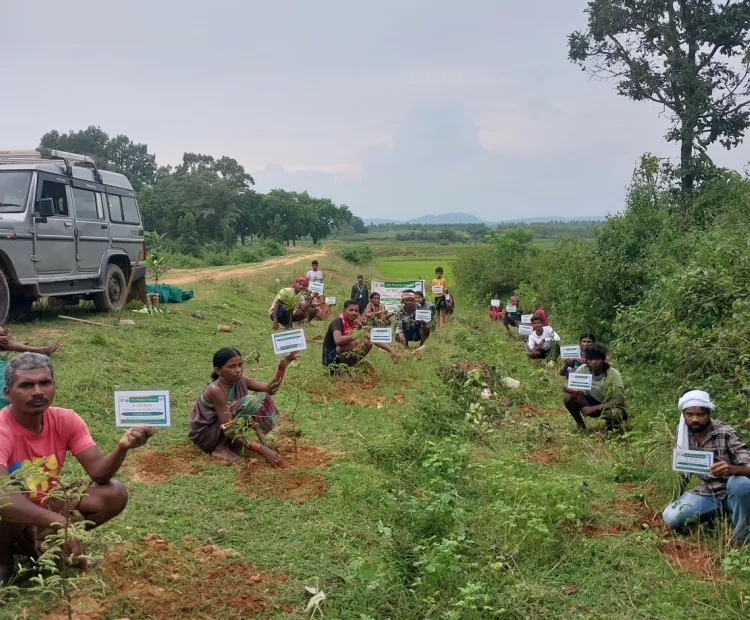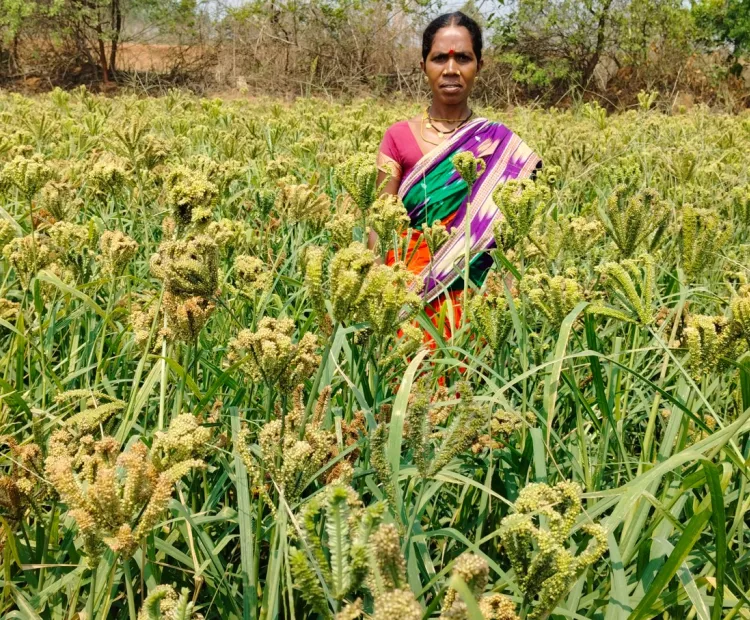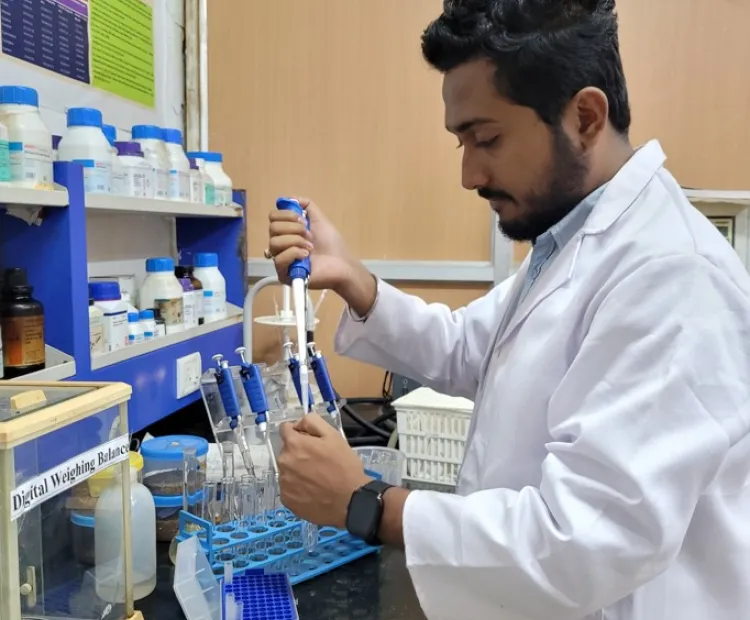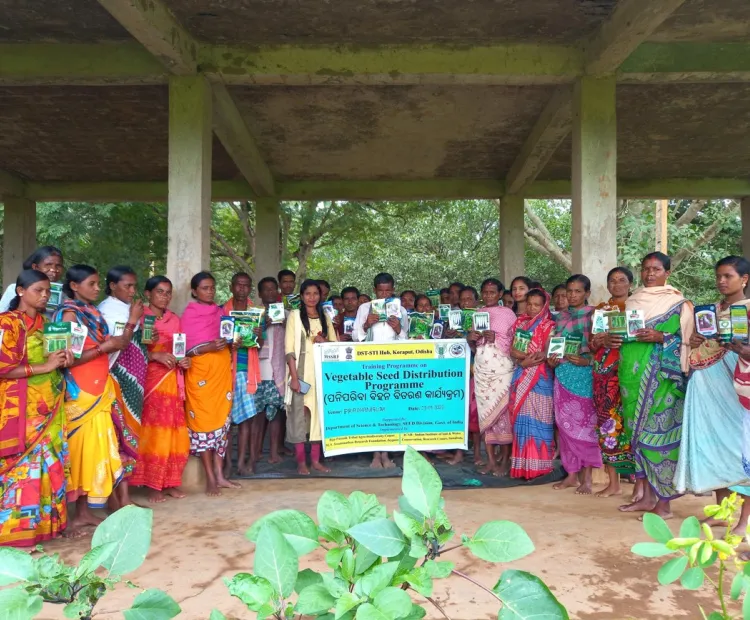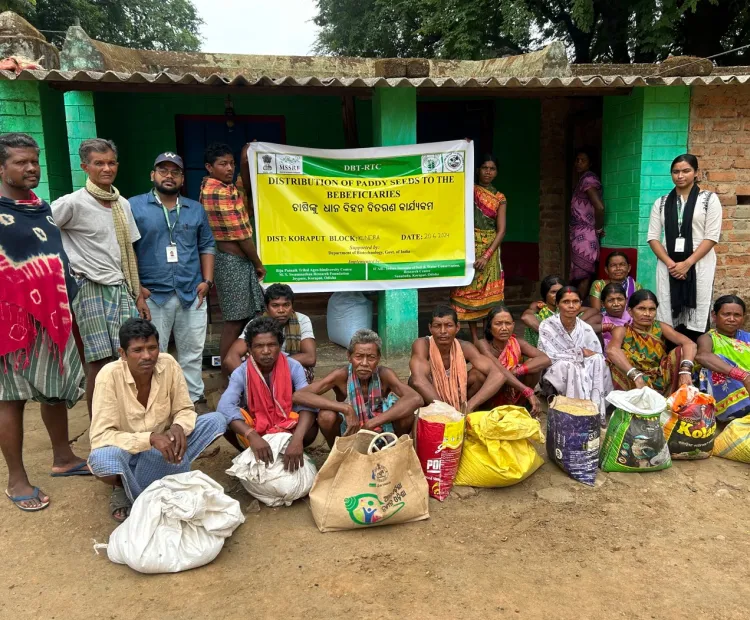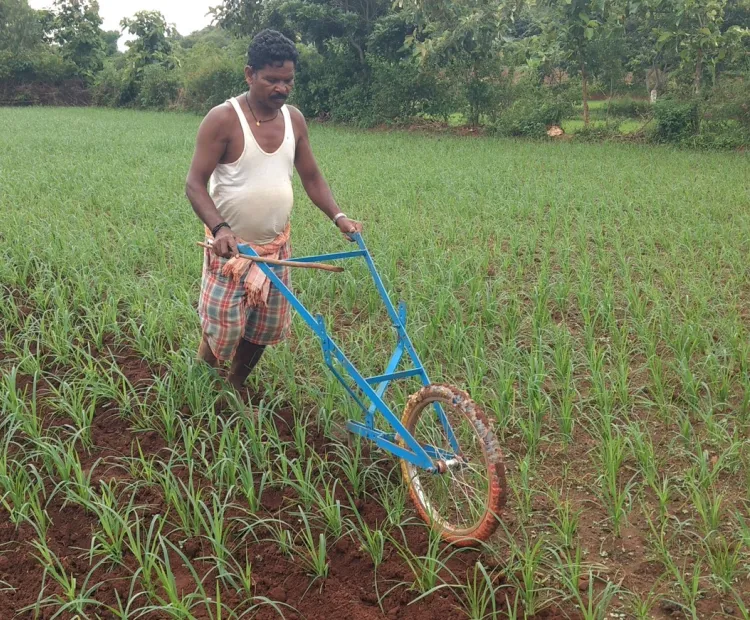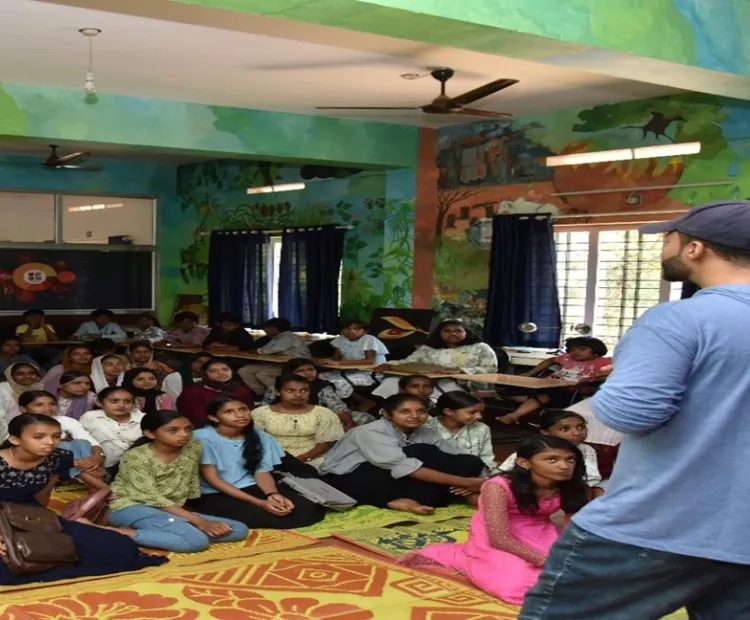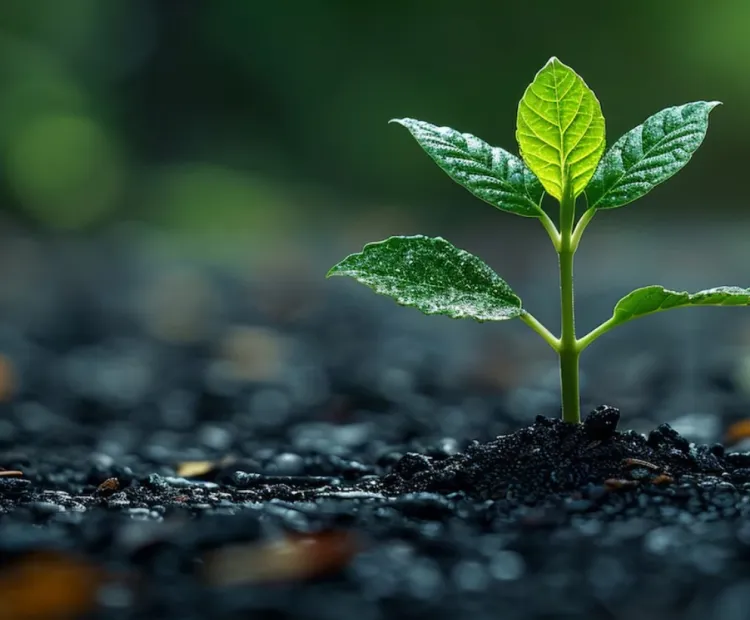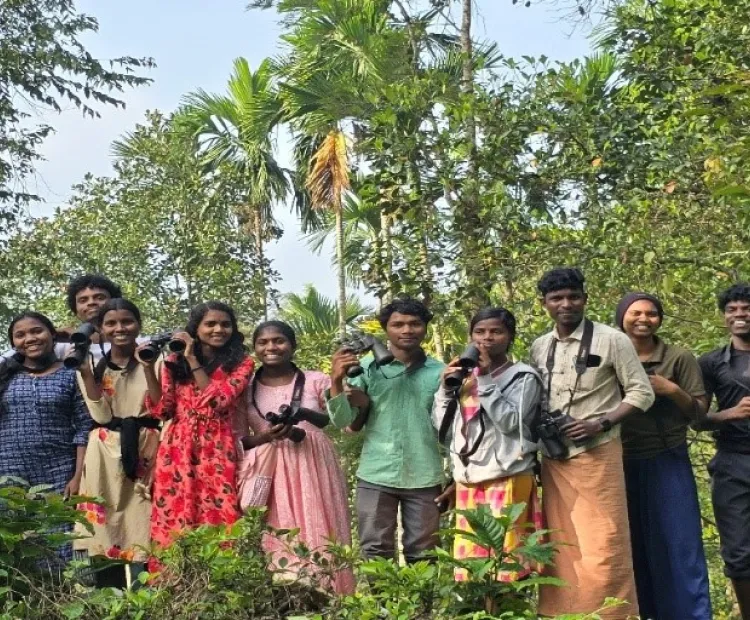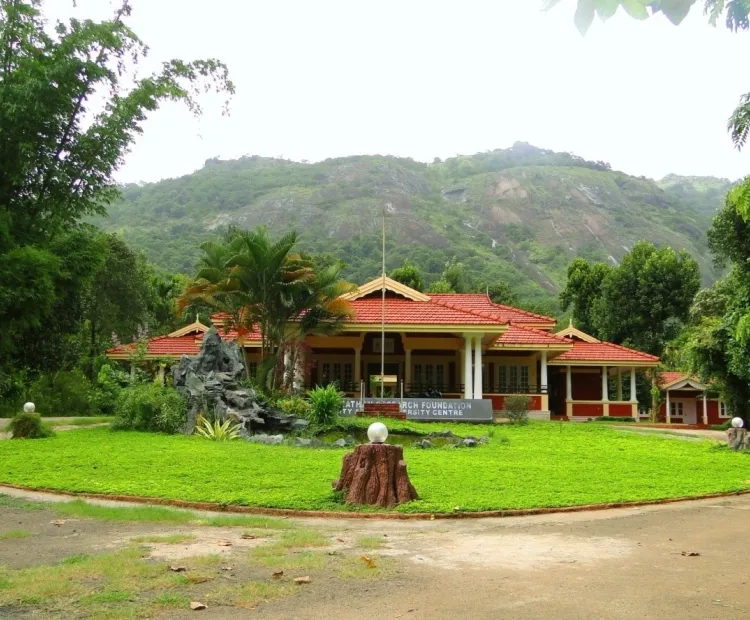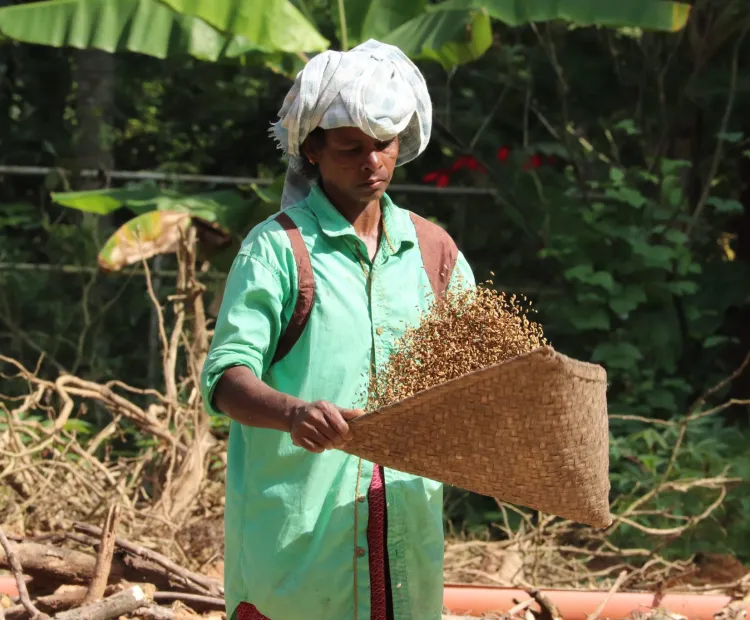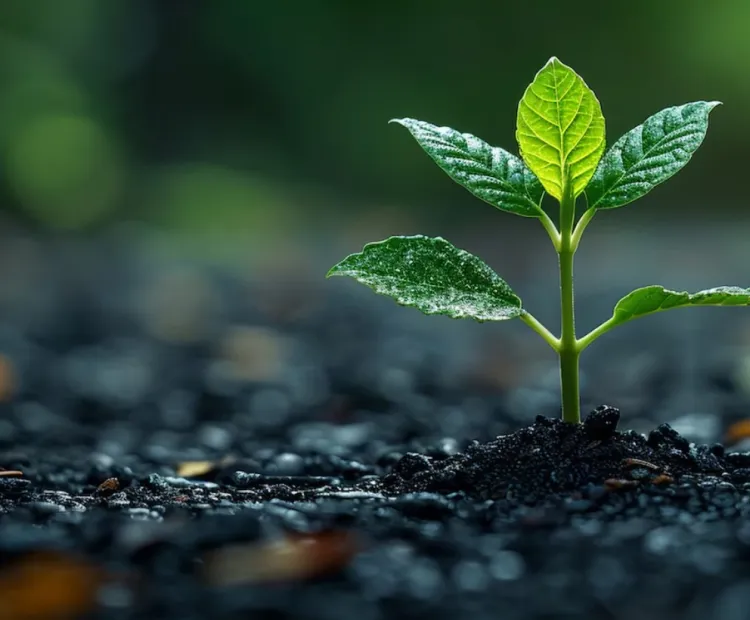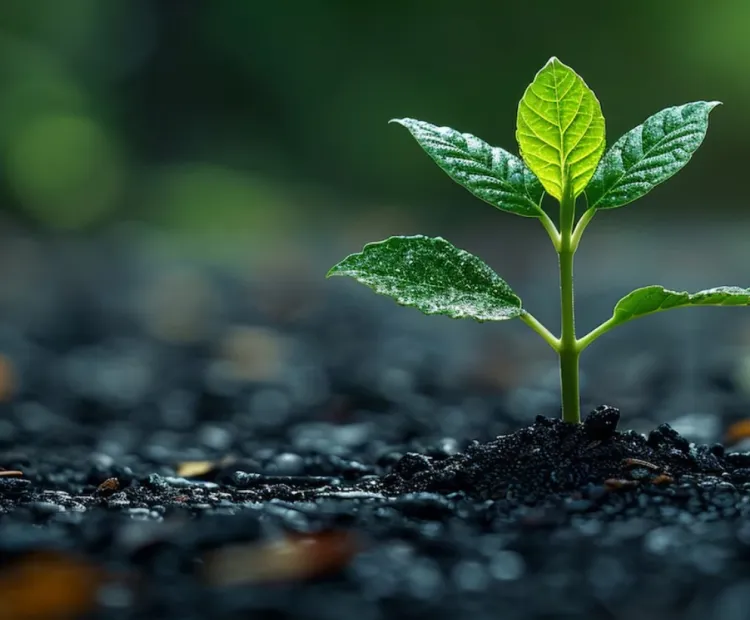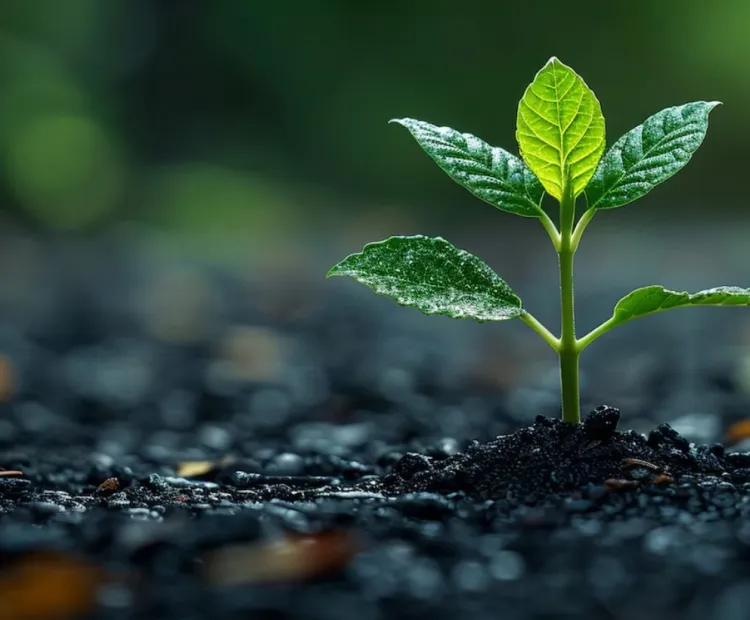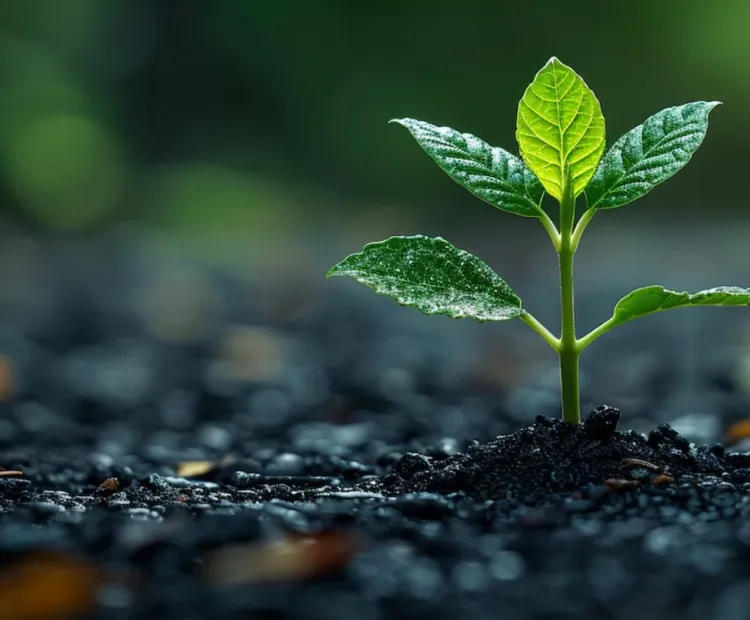Location: Boipariguda, Kundra and Koraput blocks of Koraput District, Odisha
Funder: DST-SEED Division, Govt. of India
Project Period: 54 months (February 2021 to August 2025)
Collaborative project MSSRF Lead and Partner institution ICAR-IISWC Sunabeda
Project Overview:
The proposed STI Hub intense to cover 36 villages in the three selected blocks (Boipariguda, Koraput and Kundra). The total population in the 36 selected villages will be around 12000 consisting of 3000 HHs, out of which 52.87% that is about 6300 populations consisting of 1500 households shall come under ST category.
Science &Technology component/Innovativeness/Novelty of the project:
The innovativeness/novelty of the project is to transfer /replicate some of the new/adapted/modified technologies from the proven technologies in the farming system such as SMI (System of Millet Intensification), LT (Line transplanting) in finger millet. SRI (System of Rice Intensification) in paddy, multiple cropping systems in case of vegetable, maize and pulses. Field based trials and demonstrations will be conducted in a cluster approach. The innovative method of Participatory Varietal Selection (PVS) of traditional varieties will be followed to select farmer’s preferred varieties of millets; paddy and pulses where in the farmers will be involved in the seed to seed process. Quality seed production will be a major agenda for yield enhancement. The Community Seed Banks which have been proved successful under the MSSRF’s Alternative Seed System Model will be promoted for keeping safe seed storage and easy access to farming communities. Likewise, other innovative technology based models such as Integrated Farming System Model (IFSM), Farming System for Nutrition Model (FSNM) will also be replicated in wider areas. Further the proposed STI hub will promote the production technologies of Biological Inputs and training the FPO members to produce them locally. To increase agricultural productivity and to meet the ever-increasing demand of food production, sustainable and eco-friendly technologies viz., bio-fungicides and bio-fertilizers will be promoted among the target groups. The technology will be transferred to the WSHGs/FPOs, for better impact. to achieve this followed the methodology stepwise activities and sub-activities
- Production Technology Development
- Intensive field survey for pest/predator incidence (participatory mode)
- In-depth study of cropping pattern/intensity/season of the target villages
- Rearing laboratory host/supplementary host of predators (controlled conditions)
- Mobilization and formation of women SHGs
- Training on insect pest management and mass multiplication of bio-product
- Setting up the Units - Mass production of the parasitoids (controlled conditions)
- Field release and demonstration (field conditions)
- Quantitative as well as qualitative analysis of the bio-inputs
- Marketing and Impact analysis
Objectives:
- To enhance household income and attain food & nutrition security through adoption of appropriate technological solutions.
- To develop viable bio-input and quality seed based community enterprises through a sustainable business model for minimising cost of production systems
- To enhance resource use efficiency through conservation technologies for increasing crop productivity and soil health.
- To educate and train ST communities on climate resilient farming systems, soil & water conservation practices and market driven business models.
Major Activities:
- Selection of cluster of villages and collection of bench mark information
- Water resource management and supply of portable solar operated drinking water
- Carbon stock management through SWC measures
- Monitoring of hydrological and climatic data
- Collection and analysis of soil samples
- Collection of crops and cropping system details – season wise
- Agricultural Interventions
- Demonstration of MSSRF Models
- Nutritional enhancement activities
- Women empowerment:
- Capacity building:
- Implementation of business models:
Impact of the Project:
The project will impact the people residing in the area on social and economic front. The impact on the ecology will also be positive. The detail expected impact of the project is given bellow:
- The dependence of the farmers for the inputs on external sources will be reduced as the production facilities for bio-agents, organics and others will be created within the projected area.
- Through different income generation activities to the farming women (SHGs) and unemployed rural youth, employment will be created within the project area, thus the migration of the farmers to the cities and other states for the search of work will be reduced.
- Through different capacity building activities, the rural people will learn new technologies and thus they will be employable. So this project will make the farmers and rural youth employable.
- Increase awareness and knowledge on improved production technologies will enhance the crop productivity and different SWC interventions will increase the water use efficiency. Thus, more area will be brought under cultivation and it will increase the farm income.
- The demand from the rural areas for different inputs will spin-off in creation of a bigger market and along with increased productivity and income. This initiative will become the growth engine for inclusive and sustainability development of rain fed areas in the district.
- Restoration of soil health of the cropped area will reduce the environmental degradation.
- Easy access to potable drinking water will better the health and hygiene of the rural households. Thus the money spends for the healthcare will be reduced.
- Enhancing of carbon stock and carbon credit in the project area will reduce in environmental degradation and increase in carbon footprint in the project area. Thus the area will move towards climate resilient villages.
